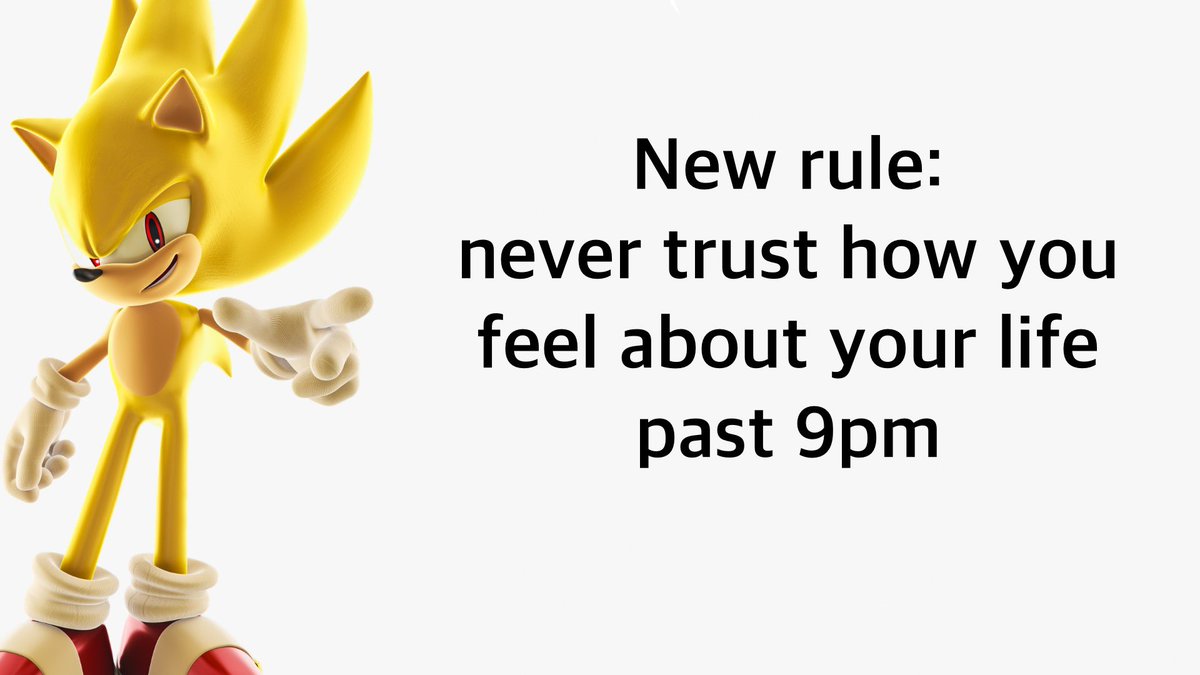Self-Care
Transitioning to university means more than just tougher classes. The whole rhythm of your life changes - managing your own schedule, balancing coursework with everything else, and navigating new responsibilities. The following tips condense everything we know about self-care.
Note: We understand that some, or none, of the following, may apply for your specific situation. It is impossible for any two people to have experienced the same life, and thus, it is impossible to make tips that will work for everybody; this applies to the Studying Tactics section earlier, too. Regardless, if you've read this far, we're proud of you for seeking support in any form. We hope that these tips, if not something you haven't already known, help you reinforce habits that will improve your physical and mental health, and consequently your university life!
1. Sleep
When deadlines pile up, it's tempting to cut back on sleep. But those extra hours awake often backfire. Getting consistent 7-9 hours makes a real difference in how well your brain functions. You'll notice lectures make more sense, programming problems feel less frustrating, and your mood stays steadier during stressful weeks. Think of it as nightly maintenance for your most important processor - your brain. As that one Sonic image says, don't trust your brain after 9 p.m.!

2. Eat Healthy
Campus life makes it easy to survive on coffee and pizza, but your body needs better inputs. Regular meals with fruits, vegetables and proteins keep your energy stable through long labs and study sessions. Simple habits make a difference: keep snacks like nuts or fruit in your backpack, carry a water bottle, and explore the healthier options at the food places on campus when you inevitably find yourself needing to. When you eat well consistently, you'll notice better concentration during those three-hour coding marathons.
3. Stay Active
You'll spend countless hours sitting - in lectures, at computers, in study sessions. Counterbalance that with regular movement. Walking between classes is already great Checking out the Active Living Centre and exercising is also highly recommended; your tuition already paid for it! Even stretching during study breaks helps prevent that stiff, foggy feeling after hours at your desk. Find what works for you - the goal isn't training for a marathon, just keeping your body functioning well.
4. Learn Mindfulness Techniques
When you're stuck on a problem or overwhelmed, pushing harder often makes it worse. Simple mindfulness techniques act like system reboots. The 4-7-8 breathing technique (inhale 4 seconds, hold 7, exhale 8) can calm racing thoughts in minutes. Many self-care apps offer free student subscriptions and guided sessions. Sometimes just stepping outside for five minutes of fresh air does more for your focus than another hour of frustrated staring at your screen.
5. Stay Connected
Computer Science work can feel isolating when you're debugging alone at midnight. Make conscious effort to maintain connections. Join classmates for meals instead of eating at your desk. Participate in the Discord community for both academic support and casual conversation. Don't underestimate the value of telling family how you're really doing, especially if you're an international student living away from home: they may provide a grounding feeling you otherwise wouldn't experience during your time in Winnipeg. These connections become crucial support during tough stretches.
6. Protect Your Time
Learning to set boundaries is a survival skill in university. Block dedicated time for both work and recovery in your schedule. Get comfortable saying "Let me check my schedule" instead of automatically saying yes to every request. Treat your downtime like critical system maintenance - without it, everything else starts malfunctioning. This gets easier with practice, especially when you see how it prevents last-minute crunches.
7. Seek Professional Help
If you're consistently feeling overwhelmed, exhausted, or anxious, please reach out. The Student Counselling Centre offers confidential support and understands academic pressures. There are also many support services for students: you can find them all here. Your health plan also pays for some therapy providers; My Student Wellbeing is one built by one of our own alumni. Even your academic advisor can help adjust course loads before things become unmanageable. Using these resources early shows wisdom, not weakness - many successful students have benefited from them.
Finding your self-care rhythm takes experimentation. Start with one manageable change - maybe better hydration or consistent bedtimes. You'll likely notice improvements in both your academic performance and overall university experience. The students who thrive longest in Computer Science are those who learn to maintain their human systems as carefully as their code.

